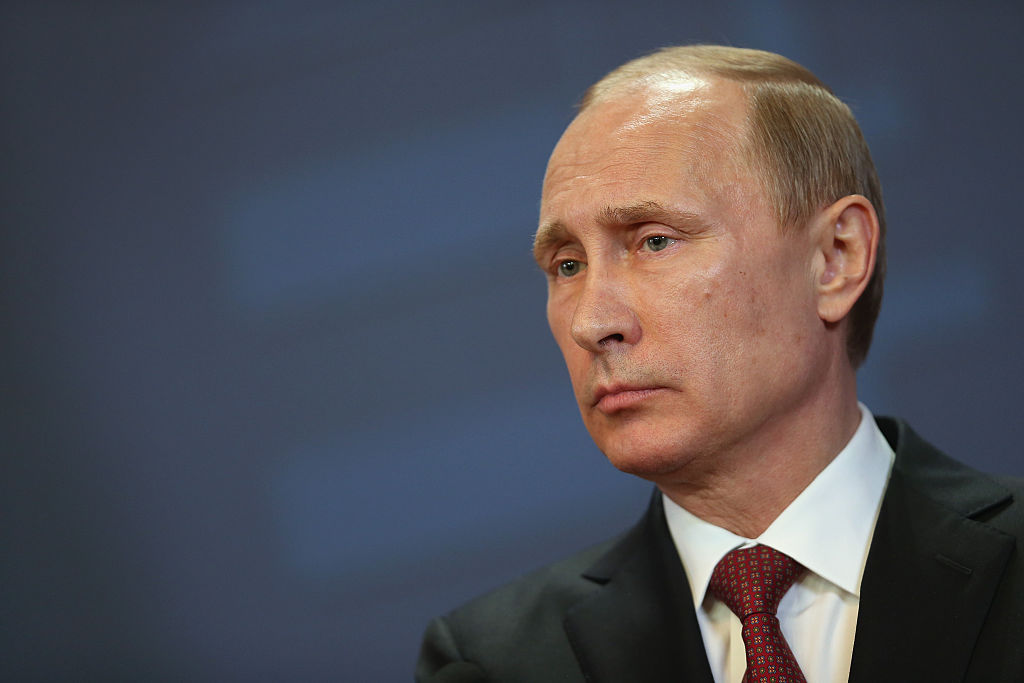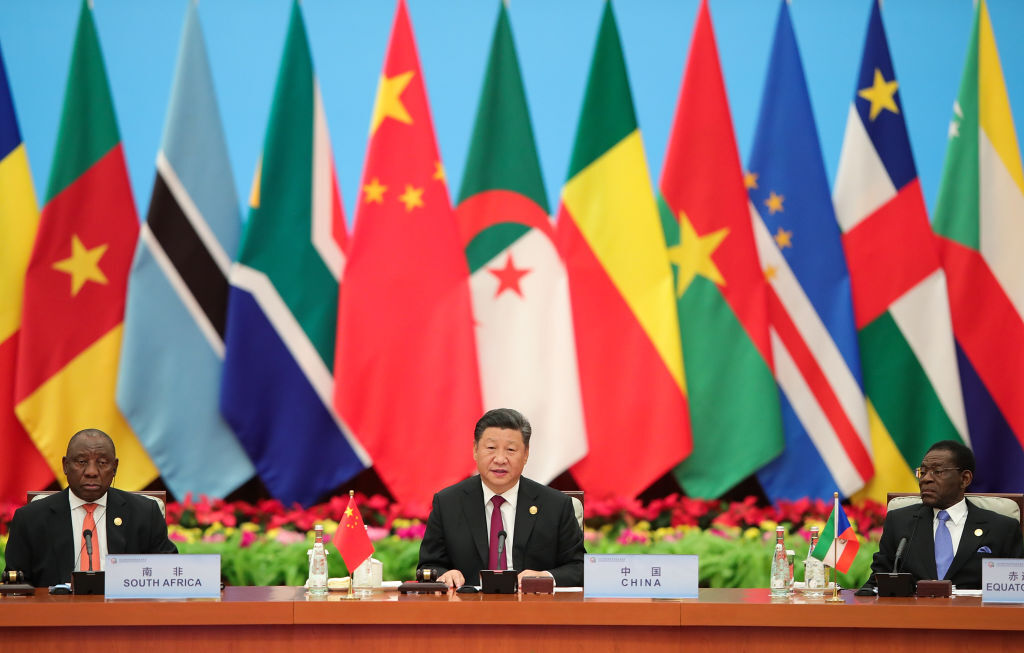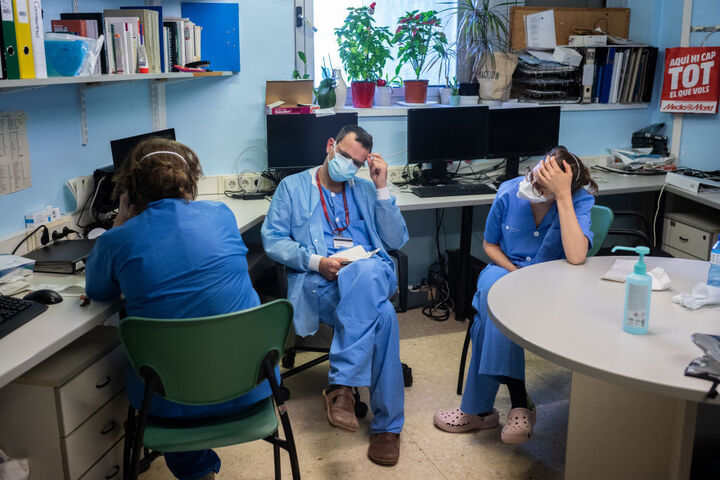Today’s Wars Are Information Wars
April 14, 2020

“A clever person solves a problem. A wise person avoids it.”
“Information is not knowledge.”
― Albert Einstein

From Cold War to Information War: From Russia With Love and Viral Misinformation
President Vladimir Putin has had unwavering goals throughout his political life: solidify his authority, eliminate his enemies, discredit Western nations, revive Russian ascendancy. His process has relied on spreading disinformation, whether about elections, or science. Not one to waste a good crisis, Putin has played a principal role in spreading false information about coronavirus, including that it was engineered as a germ weapon by American scientists.
The Trump administration’s delayed response to the epidemic bolstered Putin’s game plan: portray American officials as downplaying the health alarms, thus posing serious threats to public safety. “It’s all about seeding lack of trust in government institutions,” said an authority on Kremlin disinformation.
In truth, Putin has been cultivating false information on personal health for more than a decade. His agents have repeatedly planted and disseminated the idea that viral epidemics — from flu outbreaks to Ebola to coronavirus — were sown by American scientists.
The Kremlin’s long campaign has been waged by means of open media, secretive trolls and shadowy blogs that cast US health officials as patronizing frauds. Tactics are becoming subtler and more sophisticated — seemingly focusing on curation rather than creation — retweeting and amplifying American cacophony so as to raise the level of confusion and partisan discord.
“The accumulation of these operations over a long period of time will result in a major political impact,” said a former Soviet bloc disinformation officer. But as a public health expert noted: “The difference now is the speed with which [disinformation spreads], and the denigration of the institutions that we rely on to understand the truth.”

Lintao Zhang via Getty Images
Casting A Wide Net On A Thin Group Of People
- China is said to have contained Covid-19, but concerns have grown in recent weeks about a second-wave of infection brought into the country by overseas travelers. The issue is causing a diplomatic crisis for Beijing in Africa, after reports surfaced about coronavirus-related mistreatment of African nationals in China.
- Last week African students and expatriates in the southern Chinese city of Guangzhou were subjected to forced coronavirus testing and 14-day self-quarantine regardless of recent travel history. Additionally, large numbers of African nationals have been left homeless after being evicted by landlords and rejected by hotels in the city.
- Governments, media outlets and citizens in Africa are reacting angrily to the apparent rise in anti-foreigner sentiment, after videos circulated online of Africans being harassed by police, sleeping on streets or being locked in their homes under quarantine.
- In a statement released Sunday, a Chinese Foreign Ministry spokesman denied China had been singling out foreigners. “All foreigners are treated equally. We reject differential treatment, and we have zero tolerance for discrimination,” he said. (CNN)
Additional World News
- Second wave of locusts in east Africa ’20 times worse’, says UN (Guardian)
- Calls in Italy to rescue people at sea after fears of more migrant deaths (Guardian)
- On the Road With the French Foreign Legion (NYT, $)
- 500 Years Ago, This Port Linked East to West. Its Fate Was to Fade Away. (NYT, $)
- Olive oil industry under increasing threat from ‘olive leprosy’ (Guardian)
COVID-19
- Global coronavirus cases approach two million, doubling in under two weeks (CNBC)
- Brazil likely has 12 times more coronavirus cases than official count, study finds (Reuters)
- Coronavirus: Indonesian village uses ‘ghosts’ for distancing patrols (BBC)
- Will Covid-19 end the handshake? (BBC) (We’ve always been a fan of the fist bump)
- A Month After Emergency Declaration, Trump’s Promises Largely Unfulfilled (NPR)
- Five Takeaways on What Trump Knew as the Virus Spread (NYT)
- Five months on, what scientists now know about the coronavirus (Guardian)
- What’s Wrong With the World Health Organization (Atlantic)
- The Slur I Never Expected to Hear in 2020 (NYT)
- Opinion | The Dangerous History of Immunoprivilege (NYT)
- A Pound Of Flour To Go? Restaurants Are Selling Groceries Now (NPR)
- 3 theories for why the stock market soared in early April (Vox)
- Breakingviews – Earnings forecasts are rosy and reliably wrong (Reuters)

- We know our readers. We know you’re all curious, intelligent, engaged, and currently staying home. We’re all going through a lot right now, but thankfully there are so many things to keep us entertained – and in this case educated.
- Our go to streaming service has been CuriosityStream. Just because you’re stuck indoors, doesn’t mean you can’t learn more about what’s out there. CuriosityStream will help you stay in, stay safe, and stay curious.
- Here’s why we’re watching CuriosityStream and why we recommend it:
- They have thousands of streamable documentaries and non-fiction TV shows on topics like History, Nature, Science, Food, Technology, Travel, and more. There is something for every interest.
- You can easily stream everything from your TV, phone, tablet, or computer.
- They even have exclusive programs featuring David Attenbourough, Stephen Hawking, and Chris Hadfield.
- For a limited time, use code PNUT to sign up for just $1/month with an annual subscription.

When The People With Cures & Drugs Are The Diseases
- In mid February the coronavirus outbreak was raging in China, but it had not yet been declared a worldwide pandemic. As of February 21, the US had only 30 confirmed cases. Although companies had begun canceling international meetings around that time, a premier drug company in Massachusetts decided to go ahead with its annual leadership meeting scheduled for the end of February.
- Biogen executives in Germany, Switzerland and Italy, where there were just 20 known cases, headed to Boston. At a buffet dinner and cocktails on the first night, 175 executives gathered in a hotel overlooking Boston Harbor and enthusiastically greeted each other. At the conference’s end, Biogen employees boarded planes full of passengers, later driving home to their families and carrying the virus to at least six states, including Massachusetts, Indiana, Tennessee and North Carolina, the District of Columbia, and three countries.
- On March 2 the company’s chief medical officer sent an email informing everyone who attended the leadership meeting that some people had fallen ill. Nevertheless, that same day Biogen’s four top executives attended a huge healthcare conference hosted by an investment firm; they held meetings in hotel rooms with potential investors.
- February’s Biogen meeting was one of the earliest examples in the US of what epidemiologists call “superspreading events” of Covid -19, where a small gathering of people leads to a huge number of infections. (NYT)
David Ramos via Getty Images
If Only We Blocked Covid-19 As Much As We Block Foreign Aid
- As the number of coronavirus cases continue to grow, and health care workers themselves are falling sick, US hospitals in Covid-19 hot spots are scrambling to address a shortage of healthcare professionals to help care for patients. Foreign doctors and health care workers have lined up to take jobs at American hospitals, but many are running into roadblocks.
- Some can’t get appointments for visas at US consulates overseas that are hobbled by skeletal staffing; others are blocked from coming by travel restrictions imposed by President Trump to help prevent new exposure to the virus.
- Still others already working in the US are prevented under the terms of their visas to leave the states they are in to work in other cities hit hard by the virus. (NYT)
- The Foreign Correspondents Explaining America to the World (NYT, $)
Additional USA News
- From Federalist Papers to Federalist Battle Royale: States Unite On Reopening Economies: ‘Science — Not Politics — Will Guide’ Decisions (NPR) & Trump claims ‘total authority’ over state decisions (Politico) (The Trump Presidency is perhaps the zenith of executive branch power. And from here onwards power will shift back to the states and the other branches of government.)
- The US has a collective action problem that’s larger than the coronavirus crisis (Vox)
- Joe Biden is Captain Democrat – Let Our Powers Combine!: How Joe Biden won over Bernie Sanders — and the Democratic Party (Vox) &
- Biden mulls VP as ex-rivals work to help him overtake Trump in a race hampered by the coronavirus (CNBC)
- Storms tear through US south, leaving at least 30 people dead (Guardian)
- A house in the country: how the pandemic exposes ‘secret money’ (Guardian) & The Coronavirus Class Divide: Space and Privacy (NYT)
- People making bad decisions in red and blue states: This is a really bad idea: In Idaho, Far-Right Republicans Defy Coronavirus Health Restrictions(NPR) & this is even worse: San Francisco shuts down illegal nightclub operating amid coronavirus (Guardian)
- Thankfully most San Franciscans are being thoughtful: Coronavirus in San Francisco: How City Flattened the Curve (Atlantic) But there’s more that should be done for the homeless.
- Starving, angry and cannibalistic: America’s rats are getting desperate amid coronavirus pandemic (NBC) For the first time ever in San Francisco we are seeing rats scurrying around during the daytime.
- Mission First, Men Always: Sailor On USS Theodore Roosevelt Dies From COVID-19 Complications (NPR) & ‘There Will Be Losses’: How a Captain’s Plea Exposed a Rift in the Military (NYT)

Is The Pandemic Over? Over And Out.
- With folks stuck at home, some “old-time” apparatuses are making a comeback. The humble walkie-talkie and other push-to-talk two-way communication gadgets are getting a new life in the midst of a pandemic.
- Children are using them to stay in touch without hogging the Wi-Fi bandwidth parents need for videoconferences. Co-workers are turning to walkie-talkies and apps to avoid having to type or dial as they work remotely. Spouses and roommates are using them to stay in touch as they work in different corners of homes. “We’re so desperate for communication and social interaction at a time when we’re all so physically distant from each other,” said a university student in England quarantined with her housemates.
- Walkie-talkie-style communication is more immediate than calling on the phone, typing out a text message or even initiating a FaceTime video session, she added. Clunky but mobile two-way radios date to the late 1930s; they’ve improved considerably over time. Walkie-talkies have had a long life ever since with public-safety officials and work crews in certain businesses, like mining.
- Today as the coronavirus is reshaping how people live and work, the simplicity and immediacy of the push-to-talk feature is gaining greater appeal. (WSJ)
PNUT LAUGHS
Tom Hanks is the closest fatherly figure the United States has right now. He’s great in Forrest Gump, Cast Away, Saving Private Ryan, Road to Perdition, Bridge of Spies, and countless other movies. A national treasure. He did a great job kicking off Saturday Night Live (SNL) this past weekend. But that kickoff doesn’t come close to our favorite SNL skit of all time: Black Jeopardy with Tom Hanks. The best type of comedy is inclusive, meaning everyone is a safe target as the comedians make fun of everyone.


